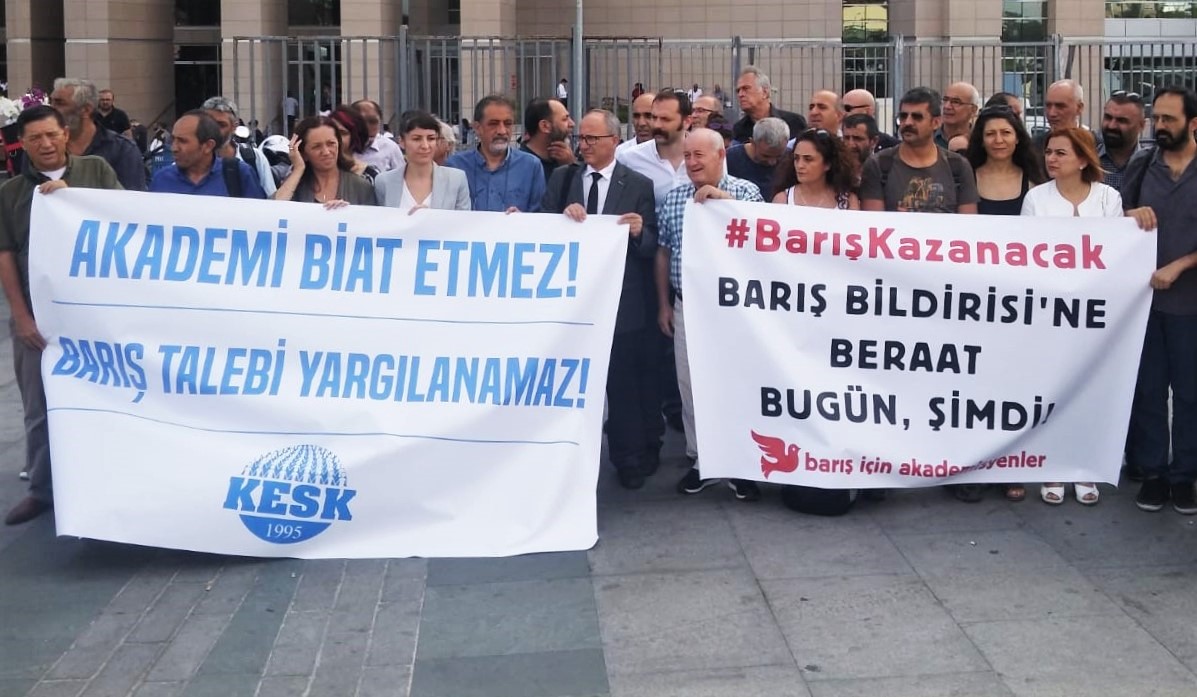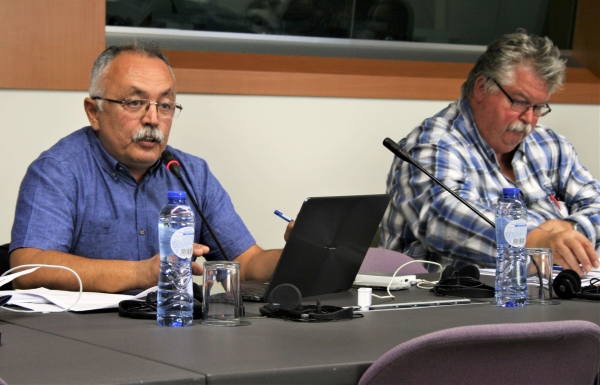Turkish courts acquit academics accused of terrorism for signing peace petition
Published:
Signing a petition for peace should never be considered a crime, but hundreds of academics in Turkey have faced more than three years of unemployment and legal turmoil for doing just that. Now the ‘Academics for Peace’ have finally been vindicated, as Turkish courts throw out accusations of terrorism and related crimes.
ETUCE welcomes this victory for democracy and free speech. However, we also call on Turkish authorities to recognise the ordeal of all the education workers who were imprisoned, dismissed or forced to leave the country.
In early 2016 the Turkish government’s oppression in the south-east of the country reached new heights. More than 1200 academics from 90 Turkish universities were joined by foreign scholars in signing a petition to demand an end to the violence.
The ‘Academics for Peace’ swiftly faced extreme consequences for their actions. Signatories were sacked from their university roles and placed under investigation for terrorism and related offences. Courts were slow to process the cases, but more than 250 academics received prison sentences. On the whole, only the more well-known figures were actually jailed. However, even the suspended sentences or investigations had a devastating effect, with academics left without work or income for years. In March 2016 a joint ETUCE/EI delegation travelled to Turkey to offer solidarity to the trade union EGITIM-SEN (Education and Science Workers of Turkey), but the oppression continued and worsened after the attempted coup d’état on 15 July 2016.
Nevertheless, some of the accused academics escalated their cases to the Turkish Constitutional Court, which ruled in June 2019 that signing the petition was not a crime. This decision was a huge victory for free speech in Turkey, and courts across the country soon started to acquit the ‘Academics for Peace’. Now a court in Istanbul has confirmed that all 1182 cases are quashed, no matter what stage of investigation or prosecution they had reached.
ETUCE can only welcome this excellent news, which is a result of the tenacity and bravery shown by the ‘Academics for Peace’. Our Standing Committee for Higher Education and Research is meeting in Brussels today, representing education trade unions in higher education and research in more than 50 countries in Europe. They issued a clear statement of solidarity with their colleagues in Turkey.

However, as EGITIM-SEN made clear at a press conference in Istanbul this morning, hundreds of academics and their families have faced huge disruption to their lives and careers. The public accusations also placed them at risk of harassment and violence from racist or fundamentalist groups. Some even had to leave the country altogether.
What will happen now? These academics must be compensated and supported as they rebuild their lives. Moreover, the Turkish government must ensure that academic freedom and democratic values are safeguarded in higher education. As a full participant in the Bologna Process since 2001, Turkey has made an international commitment to a European Higher Education Area based on these values. In the months ahead ETUCE and education trade unions across Europe will be watching the situation in Turkey closely, and we stand ready to support EGITIM-SEM and Turkish academics as necessary.
The Full Statement from ETUCE’s Standing Committee for Higher and Research
The Standing Committee for Higher Education and Research of the European Trade Union Committee for Education (ETUCE) representing education trade unions in higher education and research in more than 50 countries in Europe is pleased to learn that following yesterday‘s court hearings the allegations of terrorism against the academics who had signed the declaration “We will not be a party to this crime!“ in 2016 have been dropped and academics have been cleared of these charges. We congratulate all colleagues in Turkey for achieving this positive result and hopefully it is a step towards better recognition of academic freedom in the country and in overcoming the splits and mistrust the dismissals have created in Turkish society.
Following this major decision more steps need to be taken in due course now to re-instate academics and teachers who have lost their employment positions in the wake of these allegations and to recognise the time they have been out of employment and unable to receive a salary or social benefits. We wish our colleagues in Turkey a swift recovery to return to normal daily life with their families and their local communities.